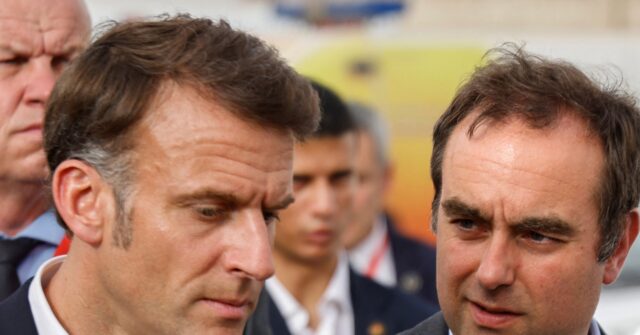Sébastien Lecornu, a longtime ally of Macron, was installed by the embattled French President last month in the wake of the censure of the government of François Bayrou, which fell less than a year after the collapse of the calamitous government of former Brexit negotiator Michel Barnier.
Now, yet another Macron government has collapsed, with Lecornu resigning less than a month after being given the post and less than 12 hours after unveiling his government of ministers. Macron accepted Lecornu’s resignation this morning.
At 27 days, this is the shortest Prime Ministerial term in the history of the Fifth French Republic, which commenced in 1958 when General Charles de Gaulle created a new constitution after a period of severe political instability, a situation that will feel all too familiar today.
French newspapers this morning call the situation an unprecedented political crisis, with President Macron facing calls to resign as head of state and to call fresh national elections.
Certainly, there is almost no possibility whatsoever that Macron, attempting to build a new government with the tools available to him, will succeed. Given that France’s politics remain in a state of permanent crisis, without a parliamentary majority to make decisions or any consensus on how to fix the deeply debt-laden government, it may be that fresh elections are the only option left, and even those could return more of the same.
Lecornu had come to his office last month on a promise of reform and of getting the government’s finances under control, but had no support of the left or the right, and even struggled to keep his own allies in check. He said on Monday that “the conditions” for him to run a government “are no longer met” and accused other politicians of bad faith in not accepting that he was trying to do things differently from his many recent forbears in the Prime Ministers’ chair.
At the heart of the political turmoil in Paris today is Macron’s ill-advised decision to call for snap legislative elections in July 2024 in the wake of his party’s trouncing in the EU Parliament by Marine Le Pen’s National Rally the month prior. With the populist party having come out on top of the first round of voting and threatening to take control of the National Assembly, Macron made the Machiavellian calculation of forming a strategic voting pact with the leftist New Popular Front to keep Le Pen and her allies from taking power.
Yet all these manoeuvres managed to achieve was a three-way split in the parliament, which has effectively made governing functionally impossible, with no faction having the requisite votes to pass a much-needed budget as the country stares down the barrel of a full-on debt crisis.
Lecornu had made some overtures to the opposition since being tapped to replace Bayrou as Prime Minister last month, notably ruling out using the controversial 49.3 clause in the French Constitution, which allows the government to pass legislation in moments of national crisis.
However, the fifth resident of the Hôtel Matignon since the start of last year faced immediate condemnation from across the political spectrum on Sunday evening after announcing his cabinet.
Although Lecornu had pledged a “break” with the Macronist establishment governments that preceded his, the cabinet unveiled on Sunday was quickly recognised as more of a reshuffle than a change of direction. With the exception of the return of former Macron finance minister Bruno Le Maire to the cabinet, this time at defence, and former socialist and long-time Macron ally Roland Lescure at the Ministry of the Economy, most of the cabinet remained in place, Le Figaro reported.
Indeed, Gérald Darmanin was announced to remain as Justice Minister, Élisabeth Borne was to remain Education Minister, Manuel Valls as Minister for Overseas, and Bruno Retailleau as Minister of the Interior. All these appointments now evaporate as France waits to see whether Macron will appoint a sixth Prime Minister to try to order an unordered parliament, or will call fresh elections.
The indications for the stability of any future Macron government — past performance aside — are not good, given that the other parties in Parliament are really hardened against working with him. Leftist parties, including the Greens, the far-left La France Insoumise (LFI) of radical presidential candidate Jean-Luc Mélenchon, and critically, the Socialist Party, were quick to signal overnight that they were in favour of bringing down the new government. Socialist leader Olivier Faure had said Sunday evening, “The cup is full, and if the situation doesn’t change, we’re heading straight for censure.”
Marine Le Pen and her National Rally on the right demanded that Macron give up the game and call fresh legislative elections. The populist leader was stinging in her condemnation of the 12-hour government as it was announced.
Referencing the return of former Finance Minister Le Maire, who oversaw the French debt explode, Le Pen said: “The choice of this identical government, seasoned with the man who bankrupted France, is pathetic. We are left speechless.”
Le Pen’s deputy, Jordan Bardella, had said: “We had clearly told the Prime Minister: it’s either a break or censorship. The government announced this evening, made up of the last Macronists clinging to the raft of the Medusa, decidedly has everything of continuity, absolutely nothing of the break that the French are expecting.”
Follow Kurt Zindulka on X: or e-mail to: kzindulka@breitbart.com
Breitbart News
Read the full article .


